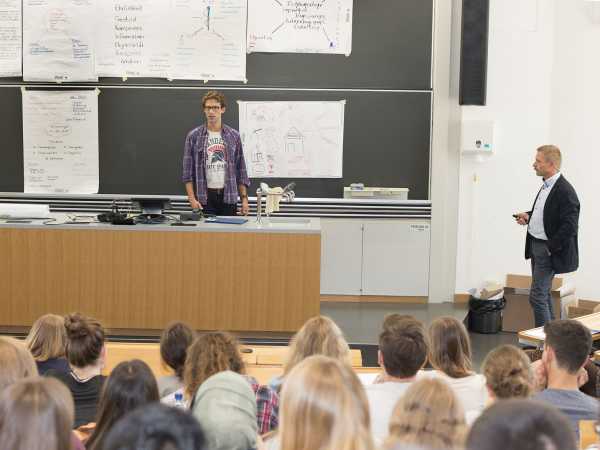Start of a new era
The autumn semester begins today for 20,000 students, but for the first 100 students to study medicine at ETH Zurich, things kicked off even earlier. An orientation event was hosted to offer them a glimpse into the degree programme awaiting them, their lecturers, the university and their new colleagues.
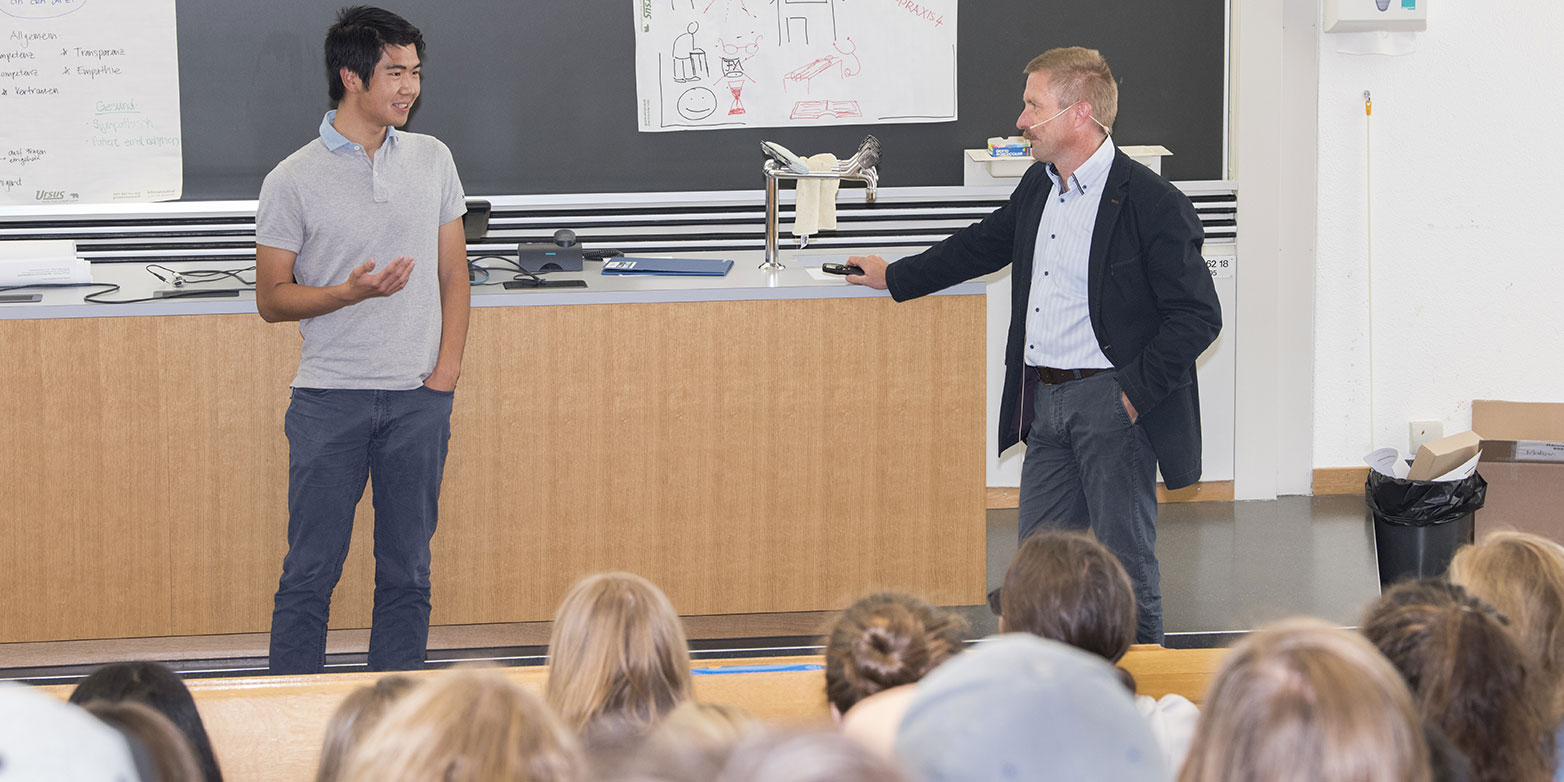
The newcomers are still a bit shy and lacking in confidence as they stand in the corridor outside auditorium G5 in the main building at ETH Zurich. They are not quite sure of themselves, and only at the request of a tutor do they move from the balustrades and pour into the lecture theatre. Here, they gain an overview of and some insights into their studies. And, as Jörg Goldhahn, project leader of the Bachelor programme in human medicine says, these are very promising.
Getting warmed up
These freshers will soon face a test in the first week of their studies: at Kantonsspital Baden, they will be faced with a clinical case to introduce them to the basics. They will work out how to handle the case and treat the patient; they will be taught rudimentary biochemistry and a lesson in basic life support. “At the end of the first week, you will be all warmed up,” Goldhahn promises the students.
It is just as clear is that the pace will not slacken after the warm-up phase: during the second week, an intensive course in microscopy and imaging will follow. A basic test is already planned for the Thursday of the second week. Regular classes begin from the second week also; these are practice-orientated and will incorporate new learning formats.
Modern learning and teaching methods
“We want to do more than simply pass on knowledge, and instead promote an understanding of concepts and contexts,” says Goldhahn. “That's different and it’s radical, but it also makes sense.” He also says it requires a lot of commitment and motivation on the part of lecturers and students.
The new degree programme benefits from the fact that ETH and its partner institutes have been able to design it from the ground up and integrate modern learning and teaching methods. Another benefit is that the curriculum is based on the new Swiss Catalogue of Learning Objectives for Undergraduate Medical Training, which goes into effect this autumn. “Our students are the first to study under these new requirements. Other universities will have to restructure their curriculum,” says Goldhahn.
Exam culture shock
Despite all the changes, the students will have to work just as hard to earn their degrees. After the first six months, the students in the first block must take the obligatory basic examination and the second just six months later. This will be a culture shock for young students fresh out of secondary school, says study programme coordinator Roland Müller.
All 100 places available were filled. Two thirds of the applicants had indicated ETH as their first choice for their medical studies, and the other third were otherwise allocated to the course. The intake includes first-year students among the biologists, physicists and graduates of medical technology.
ETH does not put them through a selection process other than the basic examinations: graduates of the programme are guaranteed to receive a Master’s place at one of ETH’s partner universities in Basel, Lugano and Zurich – since ETH Zurich does not have a hospital where medical students can complete their training. After six years of training, the students can then take the federal examination – just like other doctors in Switzerland.
Nothing is superfluous
Müller explains to the students that as the first ETH medical students, they are test pilots of sorts. This also has its advantages: “Their feedback can help to shape and improve ETH’s degree programme in medicine – that’s a unique opportunity that they should take advantage of,” he says.
On the other hand, Goldhahn warns his students that they should not take their studies lightly. There are no easy subjects, he says. Anyone who thinks ethics is a fluffy subject or that pharmaceutical technology is unnecessary will regret it later. As soon a doctor is faced with these subjects and has to admit their ignorance, they will realise what they missed during their studies. “So absorb everything that’s offered to you. Nothing in this programme is pointless; nothing is superfluous.”
Prestudy event BSc Medicine (all images: Sabine Goldhahn / ETH Zurich)
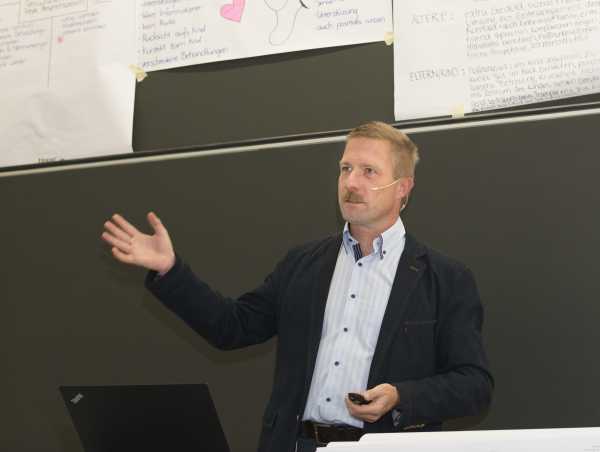 A student preparing the presentation of her group.
A student preparing the presentation of her group.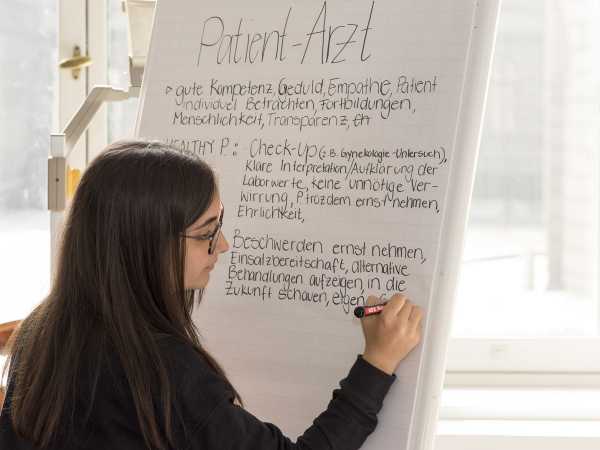 Programme coordinator Roland Müller.
Programme coordinator Roland Müller.
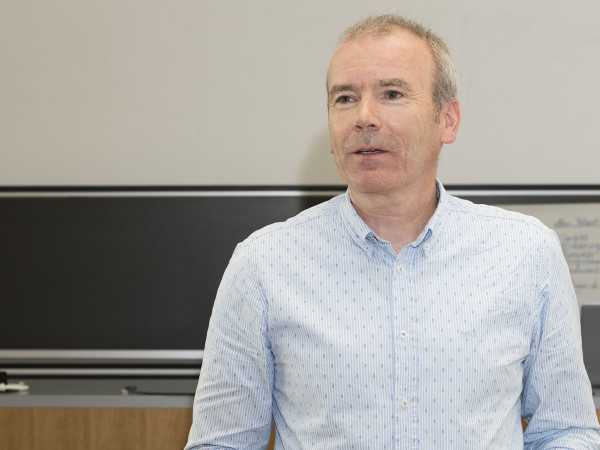 Graphic abstract of the workshop result.
Graphic abstract of the workshop result.
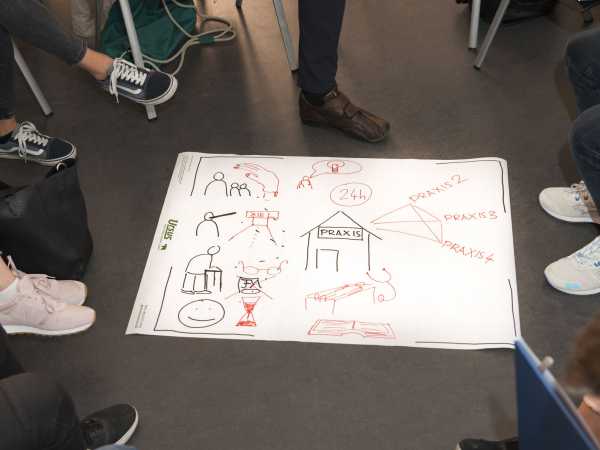 A student presents the outcome of his workshop group.
A student presents the outcome of his workshop group.
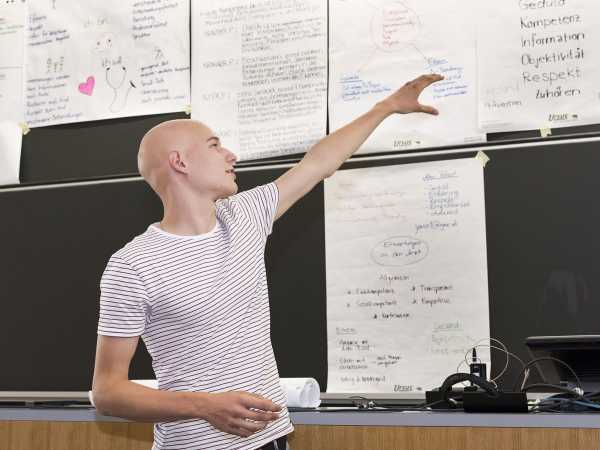 A lot of information is provided to the new students.
A lot of information is provided to the new students.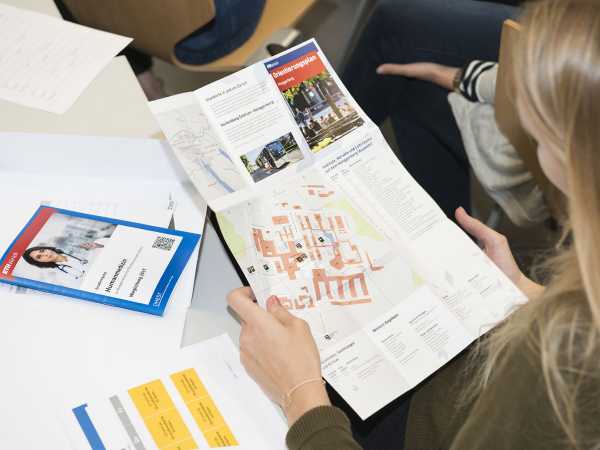 First appearance in front of the fellow students.
First appearance in front of the fellow students.